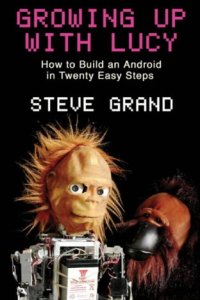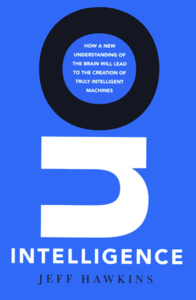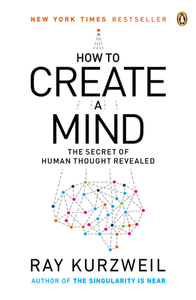Brain Books
After Charles Iliya Krempeaux gave us all an ambitious reading list at Vancouver Polyglot Unconference, I dug out my library card and got started.
Growing Up With Lucy was a great one to start with. Grand sets out to build a humanoid named Lucy. He proudly emphasizes engineering intuition over biological accuracy, and takes the endearingly modest path of tinkering in his basement to satisfy his own curiosity. I love that.
Lucy is certainly a journey more than she is a destination. I specifically hope I can disturb people into wondering what it actually means to be alive and to have a mind and to realize that this is something we can think about for ourselves, not just leave to the experts.
Sounds good to me.
Hawkins' goals are more serious. He notes that our knowledge of the brain is fragmented at best and mere taxonomy at worst. He presents a unified theory of the brain, including testable predictions that can support or refute it. It's dense but readable.
At OSCON 2013, I saw Hawkins' Keynote and learnt of his latest company Numenta, its product Grok, and its open-source cousin NuPIC. The latter is terribly exciting and I plan to hook it up to some Arduino sensors before long.
Hawkins and Grand look identical to me. I guess I shouldn't be surprised though: Fire together, wire together.
I've been fascinated with Kurzweil's work since I read The Age of Spiritual Machines almost fifteen years ago (right after I bought the Our Lady Peace album it inspired). I found this book to be very similar to On Intelligence and only made it half way through. Especially after the wonder of the first two books, Kurzweil's academic tone put me off.
At the end of Hawkins' excellent Google Tech Talk, I was amused that Kurzweil (recently in Google's employ) stood up to the mic to ask a question make a comment. He's getting kookier with age.


